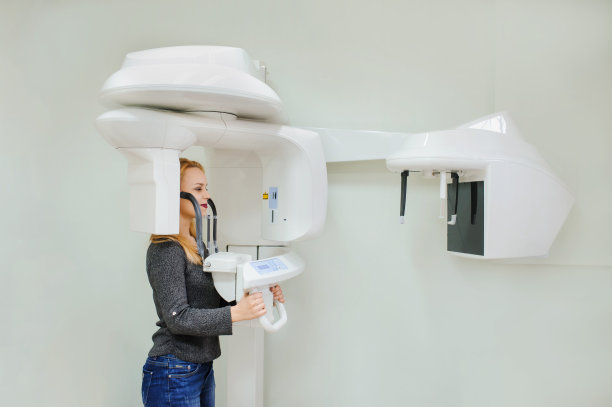Summary: Extracting a tooth is a significant dental procedure that can lead to optimal oral health when performed correctly. This article aims to provide a comprehensive understanding of the tooth extraction process, including essential steps from preparation to the actual extraction. Following the extraction, proper aftercare is crucial for effective recovery, minimizing post-operative complications, and ensuring lasting oral health. The article elaborates on tips for a smooth recovery, dietary recommendations, and signs of potential complications to watch for post-extraction. Understanding these facets can alleviate anxiety and promote a more seamless recovery experience.
1. Understanding the Tooth Extraction Process

The tooth extraction process begins with a thorough examination by the dentist. This typically involves taking X-rays to assess the condition of the tooth and its surrounding structures. Understanding the exact location and angle of the tooth to be extracted helps in planning the procedure effectively. Additionally, the dentist will discuss the patients medical history to determine any pre-existing conditions that might affect the extraction.
Once the assessment is complete, the dentist will prepare the patient for the extraction. This preparation may involve applying a local anesthetic to numb the area around the tooth, ensuring that the patient does not experience pain during the procedure. In some cases, sedation dentistry options might be recommended for patients with anxiety or those undergoing more complex extractions.
After ensuring the patient is comfortable, the dentist will proceed with the extraction. For a straightforward extraction, the tooth is loosened with dental instruments and gently removed, while surgical extractions may involve incisions in the gum tissue. Each technique is tailored to the specific needs of the patient and the condition of the tooth being extracted.
2. Importance of Aftercare for Recovery
After a tooth extraction, the aftercare provided is crucial in determining the recovery speed and overall outcome. The patient will be given detailed instructions on how to care for the extraction site, including the need to bite down on gauze pads to control bleeding. Controlling bleeding within the first 24 hours is vital, and patients should avoid disturbing the clot that forms in the socket.
Another important aspect of aftercare is managing pain and swelling. Dentists typically prescribe pain relief medication and advise patients to apply an ice pack to their cheeks for the first 24 hours to reduce swelling. It is essential for patients to follow these recommendations to ensure a more comfortable healing process.
Additionally, maintaining oral hygiene is essential, though patients should avoid brushing directly over the extraction site for a few days. Rinsing gently with warm salt water helps prevent infections while promoting healing. Following these aftercare guidelines significantly contributes to a smoother recovery.
3. Dietary Recommendations Following Extraction
Dietary choices post-extraction play a significant role in the recovery process. During the initial stages, its essential to consume soft foods that require minimal chewing, such as yogurt, applesauce, and mashed potatoes. These options not only minimize discomfort but also ensure adequate nutrition during recovery.
As healing progresses, patients can gradually reintroduce solid foods into their diet. However, its advised to avoid hard, crunchy, or sticky foods that may irritate the extraction site or dislodge the blood clot. Drinking plenty of water and avoiding straws during the first few days is also crucial as sucking motions can create pressure that disrupts healing.
Maintaining a well-balanced diet rich in vitamins and minerals will aid the bodys recovery efforts. Foods high in vitamin C and calcium, such as leafy greens and fruits, can support healing and improve overall oral health. Tailoring food choices to promote successful recovery after tooth extraction helps ensure that the process is as smooth as possible.
4. Recognizing Complications After Extraction
While most tooth extractions result in uncomplicated healing, some patients may experience complications that warrant immediate attention. One common issue is dry socket, which occurs when the blood clot dissolves or dislodges before the wound has completely healed. Symptoms of dry socket include severe pain and unpleasant odors, necessitating a visit to the dentist for treatment.
Another complication could be an infection at the extraction site, characterized by increased swelling, pain, and fever. Promptly reporting these symptoms to a dental professional is critical for effective management and treatment. Identifying and addressing complications early greatly increases the likelihood of a smooth recovery.
Monitoring the healing process and maintaining regular follow-up appointments with the dentist can help catch any potential issues early. Patients should also feel empowered to discuss any concerns with their dentist throughout the healing journey.
Summary:
Caring for oneself after a tooth extraction is equally as important as the procedure itself. Understanding the steps and having a solid aftercare plan can lead to optimal oral health and a satisfactory recovery experience. By adhering to dietary recommendations and keeping an eye out for potential complications, patients can enhance their healing process significantly.
This article is compiled by Vickong Dental and the content is for reference only.
Vickong Dental
Vickong Dental is a large medical group established in Hong Kong in 2008 by professors from well-known medical universities in Guangdong and Hong Kong, as well as medical doctors from key national '985' universities (including Master's supervisors and senior professors). The chain of branches brings together expert dentists with PhDs and Master's degrees from Hong Kong and Mainland China, committed to providing high-quality dental treatment.
"Vickong Dental Practices the University Motto of 'Healing and Serving Society,' with a Stable Operation for Sixteen Years. It Has Been honored with Hong Kong Enterprise Leaders's Choice,' and is a Global Trusted Implant Center for the Nobel Implant System. Recommended by Hong Kong Metro Broadcast and Guangdong Television, it Serves Customers from Over Thirty Countries and Regions, Gaining the Trust and Favor of Citizens from the Guangdong-Hong Kong-Macau Greater Bay Area and Surrounding Cities.

Thousands of customers' unanimous praise
The most recognized and highly recommended dental service by customers in the Guangdong-Hong Kong-Macau Greater Bay Area
We Ensure You Receive Detailed Care and Attention Here
Hong Kong standards, Shenzhen prices, Your Trusted English-speaking dentists

Vickong Dental Medical-Grade Instrument Disinfection Process
Vickong Dental Medical-Grade Instrument Disinfection Process

Vickong Dental Chain: A Warm and Comfortable Environment for Treatment






Appointment Hours

Q&A
Why choose Vickong Dental?
Vickong Dental practices the university motto 「Medicine to Benefit Society」, with each branch bringing together highly qualified dentists with doctoral and master’s degrees from Hong Kong and the Mainland, and has maintained seventeen years of steady operation。Recipient of 「2024 Hong Kong Enterprise Leaders Brand」, 「2025 Hong Kong Enterprise Leaders Brand」, a Nobel Biocare Global Trusted Implant Center, and a brand recommended by Metro Radio Hong Kong and Guangdong TV。
To date, we have served customers from more than thirty countries and regions,earning exceptionally high word-of-mouth recognition and trusted recommendations from residents across the Guangdong-Hong Kong-Macao Greater Bay Area and surrounding cities
We have eight major branches in Zhuhai、Shenzhen,and a consultation and service assurance center in Hong Kong,so you can book a free consultation at any time for any questions,which is very reassuring.
If I do not accept the quotation after the CT scan, will I be charged??
No! As long as the actual treatment has not started, you will not be charged any fees.
Will there be any additional charges during the treatment process?
No, there won’t be any additional charges. Before treatment begins, we will clearly explain the treatment plan and its corresponding fees. Only after the patient agrees and signs the consent form will we proceed with the dental service.
Can I pay in Hong Kong dollars?
Yes. Vickong Dental accepts payment in Hong Kong dollars. The amount will be converted based on the exchange rate of the day, and the applicable rate will be clearly communicated to you in advance.
Can I reschedule my appointment at any time?
Yes. Please contact us via **WeChat** or **WhatsApp** as early as possible, providing your original appointment time and details, along with your preferred new date and time slot for rescheduling.













